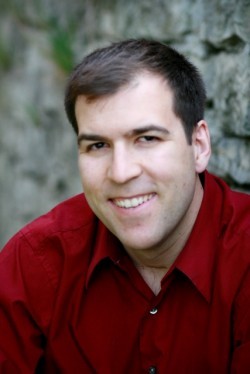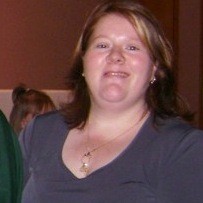
Michael Lepage
Age at Diagnosis: 22
Current Age (at time of profile): 31
Michael is deeply committed to helping others facing cancer challenges and also helping those who have faced cancer and are trying to reconnect to their lives.
Hometown
Dundas, ON
How did you find out you were sick? What events led to the diagnosis?
In my last year of University, I was constantly sick with the flu and a chest cold. I visited clinic twice but the doctors there didn’t see anything serious going on. I was told to get lots of rest and drink lots of fluids. At the Christmas break, I saw my family doctor in Sudbury, ON. He ran a series of tests on me: blood work, urine analysis and a chest x-ray. That’s when he found a very large tumor in the middle of my chest. It measured 10cm x 12cm x 8cm. Well, this finding led to all sorts of other tests, two biopsies and finally a 98% diagnosis of Hodgkin’s Lymphoma.
What year was it? What was your age at the time?
I was 22 years old, the year was 1999.
At what level of education were you at diagnosis?
I had completed 3.5 years of a 4 year undergraduate degree at Laurier University.
Do you work? Yes.
What was your diagnosis?
Stage 3b Hodgkin’s Lymphoma they called it ‘bulky disease’.
What are your career goals?
My career goal is to create an organization that helps young adult cancer survivors live their lives to their highest potential. How? Through powerful educational events, workshops and seminars.
What were your first thoughts when diagnosed?
I wanted to know what I was dealing with. I was never terribly afraid. I figure, subconsciously I was already prepared for a large battle. I really wanted to just get on with treatments as soon as possible.
How did your family react?
My parents were deeply concerned and afraid. My younger sister was also deeply affected by my diagnosis today she still feels that my diagnosis led to the onset of her depression something she has now struggled with for a decade or more.
How did your friends react?
Most of my friends were concerned. Most of them also were afraid to really confront me about it. Not many really knew how to support me or asked how to help. My very best friend at the time simply didn’t know how to deal with it and avoided me to protect himself; he confessed this to me years later.
What did your treatment consist of?
Medical Side: 8 cycles of ABVD chemo (1 treatment every 2 weeks) (outpatient) and 4 weeks of radiation to the chest (a few times/week).
Non-Medical Side: Physically, the first round of chemo almost killed me. I had some very serious side-effects, but was not admitted to hospital. I started taking Neupogen injections daily to boost my white blood cells this works miracles. Without Neupogen, I wouldn’t have been able to have chemo.
Emotionally, I remember being very angry pushing people away, especially my parents. I wanted to get better on my own. We fought. I wanted to escape. Eventually acceptance came in, which gave way to healing faster and easier.
In which hospital(s) were you treated?
Sudbury Regional Cancer Center.
What is your current medical status?
Healthy as an ox; been in remission for eight years.
How is life different for you now post diagnosis (physically, emotionally, socially, spiritually)?
Physically: I’m in better shape and health now than I ever was before I was ill.
Emotionally: I’m 1000% more in tune with my emotions. Cancer has taught me to love myself, unconditionally. I used to be so hard on myself that I could never meet my own expectations. My life is vastly different now.
Socially: I used to hang around with people I didn’t like, who didn’t really like me. It was convenient. Not any more. I don’t spend time with people socially who I don’t resonate with it’s not that I’m judging them or shunning them, but there are other people, who I do spend time with, who bring out the best in me.
Spiritually: Cancer provided me with a spiritual awakening. I was never spiritual prior to cancer. During my illness I discovered meditation, which I credit as a major force for my healing. Now, I consider myself a spiritual enthusiast and a devotee of my spiritual teacher and guru. I practice meditation daily, attend workshops and volunteer my time with Wellspring, a cancer support agency in my area.
What is/was the toughest part of your challenge?
I found stopping school for a year and putting my life on hold a major upset for me. It was hard, but definitely worthwhile.
What is/was the best part of your challenge?
My life is so much more meaningful and fulfilling after cancer. I see cancer as a huge GIFT. I wouldn’t be the kind, loving, enthusiastic, spiritual man that I am today if not for cancer. Sometimes the hardest, scariest events in life are the more rewarding as well.
What really motivated you to keep going while you were sick?
Simple, I knew I had my life to live. I never felt like I was going to die of cancer. I wanted to finish school and achieve the long list of goals for my life.
What lessons or messages have you taken away from your experience?
Lesson: I learned that loving who you are and putting other people’s judgments aside is crucial to being happy in life.
Lesson: I learned that environment is powerful. The environment I lived in when I got cancer was toxic to me. The environment I lived in when I became healthy was nurturing. You have to create your environment.
What are your thoughts and feelings about your illness now? How have they changed since before your diagnosis?
It has taken me some years to conclude that cancer was a huge gift in my life. I bless the whole experience, whereas before, I was simply happy to be done it. I think over time I’m more appreciative of what cancer did.
What are some (if there are any you know of) preventative measures that people can take to lower their risk of having an experience like yours?
I believe illnesses like cancer can arise out deep emotional hurts that remain unresolved. Often these hurts result in negative emotions: fear, guilt, feelings of unworthiness or not being loved, etc. To pair it down and oversimplify cancer often comes were we refuse to forgive and love ourselves adequately. The best prevention is to learn to inspect your emotions, your hurts, to understand these events in your life and your emotions. Communicating with someone about these events or hurts is paramount.
Did you attend any support groups during your challenge?
No.
If you did not attend a support group, why?
I’m not really sure that I would have attended one. I don’t think there were many good programs available or any that resonated with me. My weekly meditation group became the best support group ever.
How are you connected with Young Adult Cancer?
I’ve only recently found the RealTime Cancer Community.








